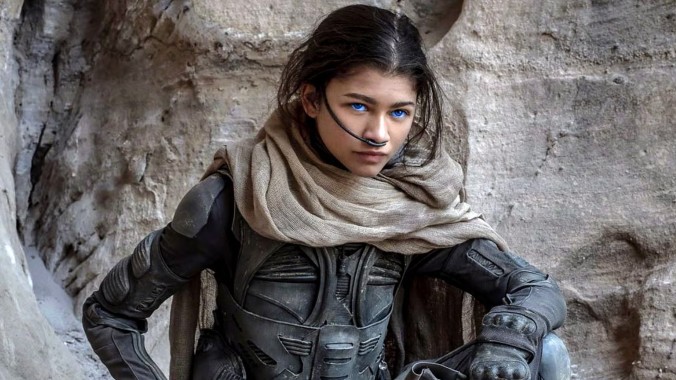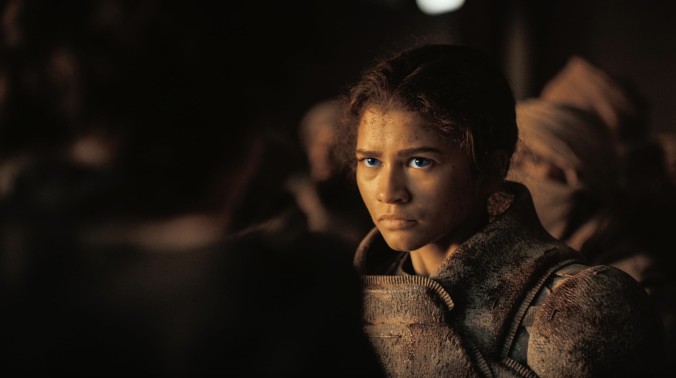‘Dune’ Director Recreated Zendaya’s Character to Sharpen the Book’s Warning About Saviors
At an early screening in NYC, director Denis Villeneuve said Frank Herbert wanted his books “to be a warning, a cautionary tale regarding Messianic figures.” Villeneuve repurposed Zendaya's Chani to deliver this.
Photo: Warner Bros Movies
Warning: Spoilers below
Dune: Part 2 has finally hit theaters and, among many other reasons it’s already likely to be one of the biggest movies of the year, the sequel finally features Zendaya in a major role—AKA, as a much more prominent figure than just the ethereal desert woman in Paul Atreides’ (Timothee Chalamet) dreams in Dune: Part One. The sequel picks up right where the first left off, with Paul and his mother, the Bene Gesserit witch Lady Jessica (Rebecca Ferguson), joining a group of indigenous Fremen in the wake of the Harkonnens’ massacre on House Atreides.
While Paul remains Dune’s increasingly questionable protagonist, the perspective of Zendaya’s Chani—a Fremen warrior who doesn’t believe in the prophecy that Paul is a savior—is pivotal to understanding where director Denis Villeneuve is trying to take Dune. These films are based on Frank Herbert’s books, which were written to comment on colonialism, religion, white saviorism, and the perils of saviorism more generally. At a Monday screening of Dune: Part 2 in New York City, Villeneuve spoke about the role of Chani’s character in the sequel to clarify that Paul’s arc is meant to critique rather than glorify Messianic figures who promise to free the oppressed.
The film centers largely around Paul’s inner conflict with his own maybe destiny—that is, to become a Messianic figure—and his desire to simply work alongside the Fremen toward liberation. Many of the Fremen believe Paul will liberate them from the Empire’s oppression and conquer the universe, and Paul’s own mother is determined to make that prophecy come true at any cost.
-

-

-

-

-

-

-

-

-

-

-

-

-

-

-

-

-

-

-

-

-

-

-

-

-

-

-

-

-

-

-

-

-

-

-

-

-

-

-

-









































